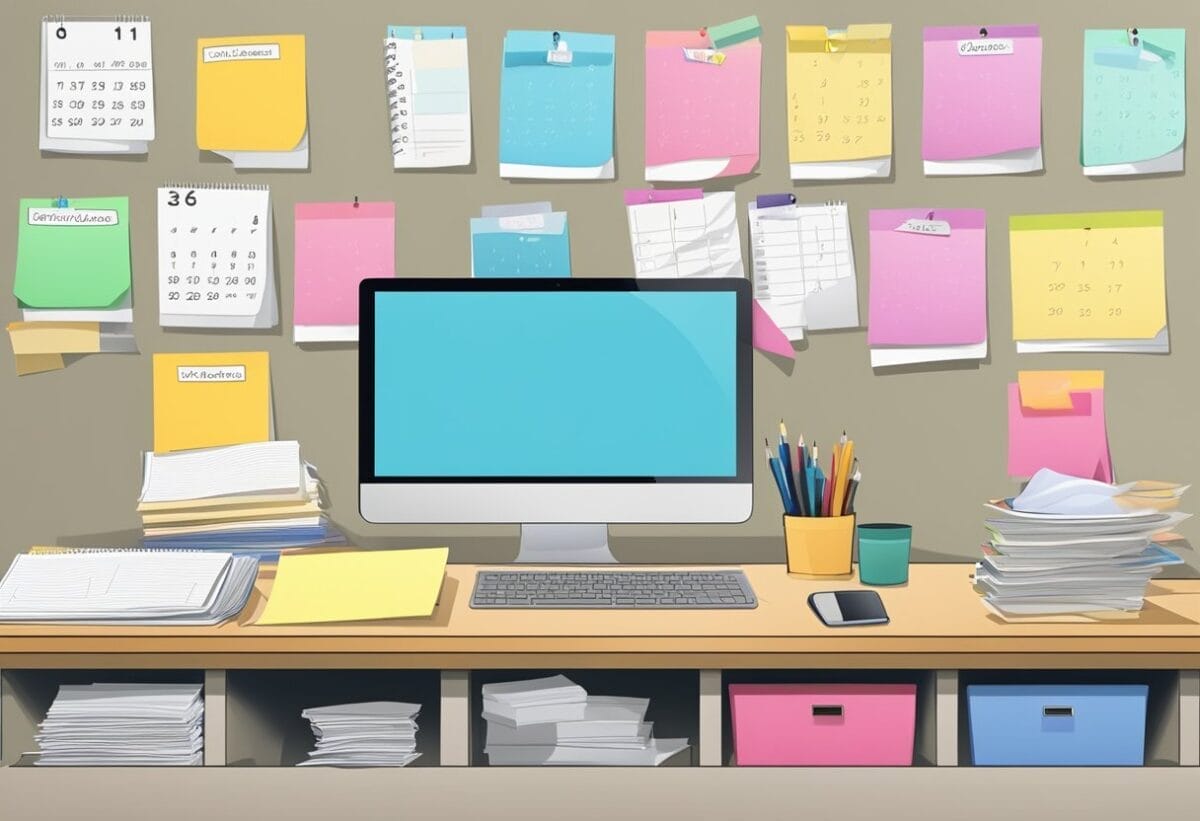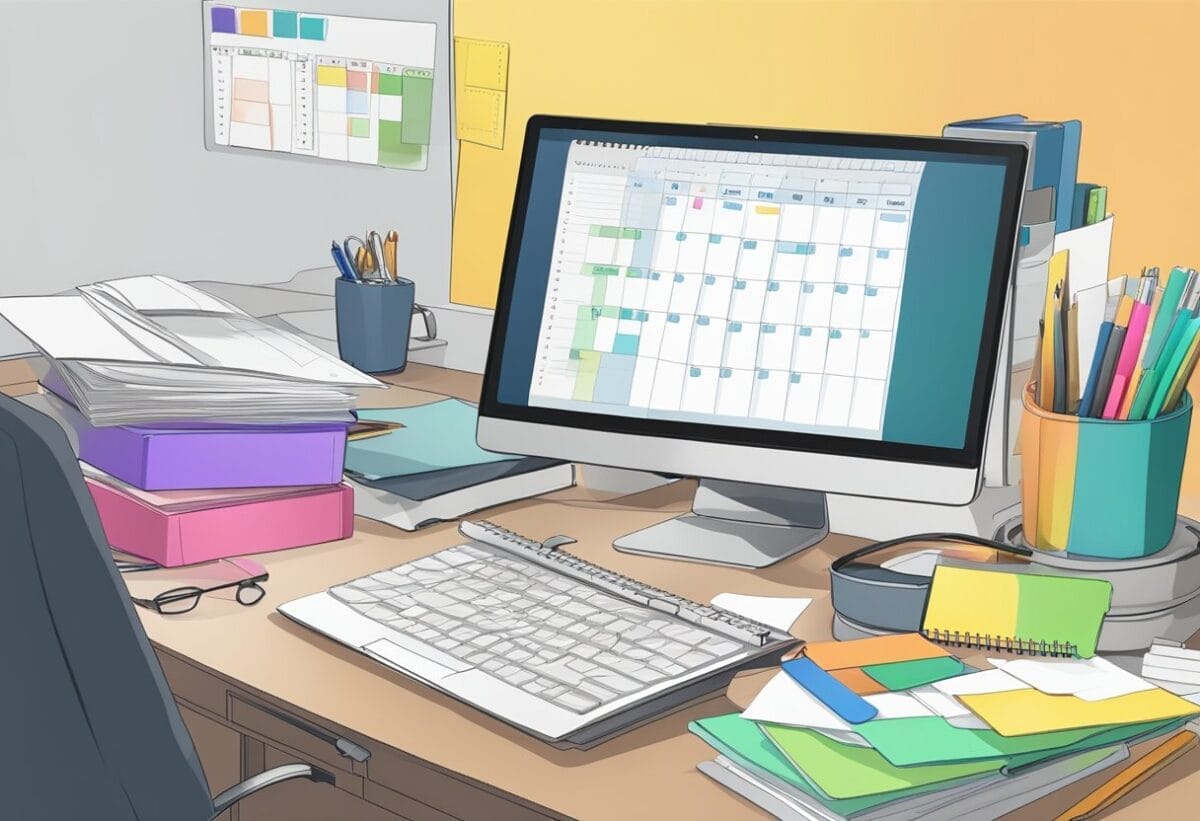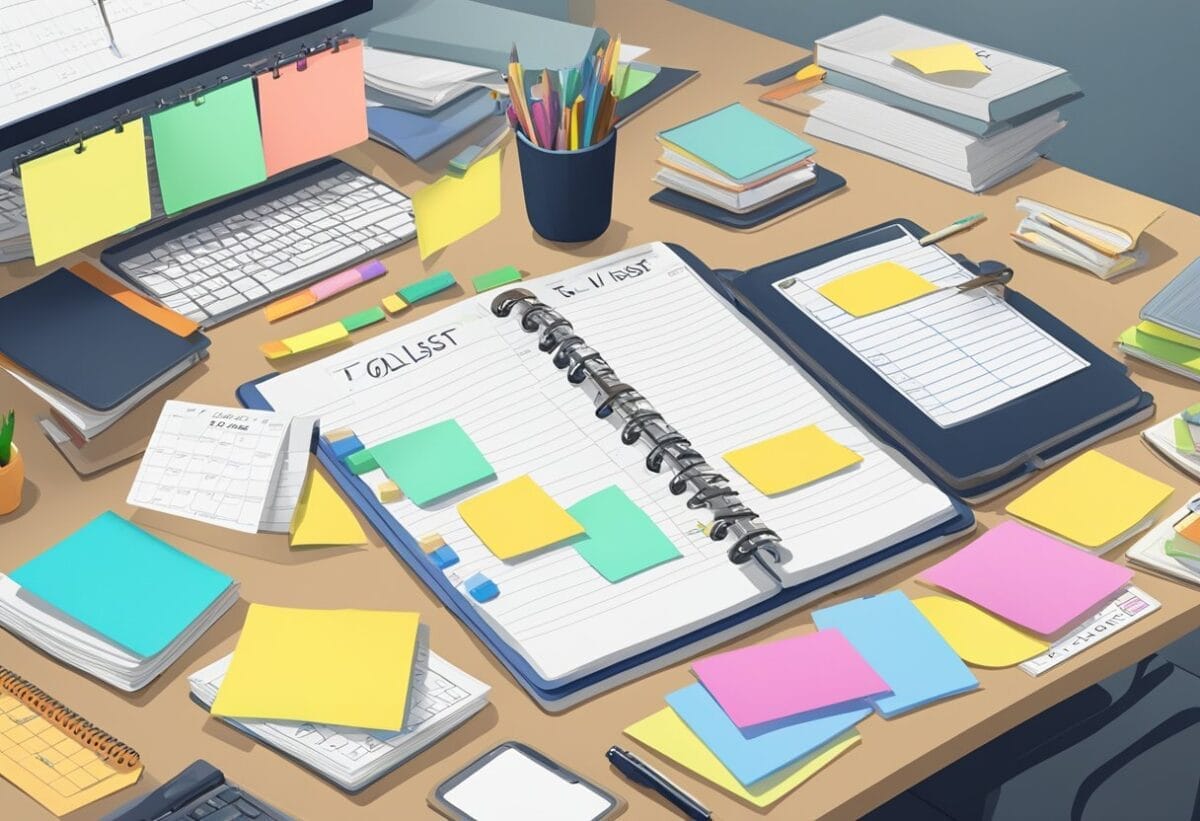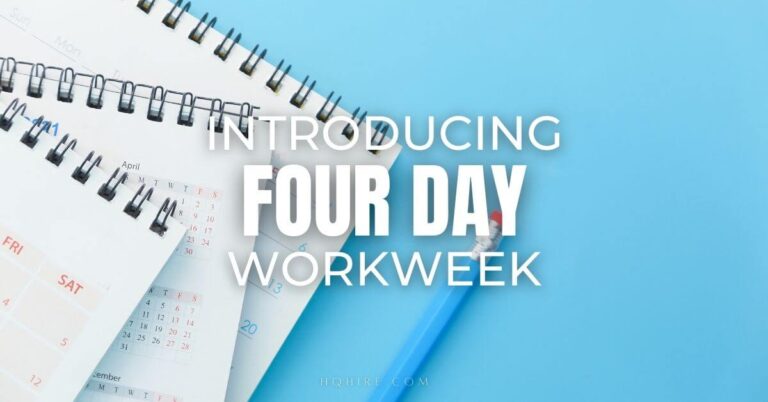Amount the many common job interview questions, this one question you might face is “How do you stay organized?” This question helps employers understand your work style and habits.
You can mention tools like calendars, to-do lists, or apps you use. It’s also helpful to give a brief example of how your organization skills have helped you succeed in past roles.
A good answer shows that you have effective methods to manage tasks and time.

When answering, be honest and specific. Employers want to know that you can handle multiple responsibilities without letting things slip through the cracks.
Your answer should demonstrate that you’re reliable and can prioritize effectively.
Key Takeaways
- Highlight specific organization methods you use in your daily work
- Give a brief example of how being organized has helped you succeed
- Show that you can handle multiple projects and prioritize tasks effectively
Why Do Employers Ask “How Do You Stay Organized?” During An Interview
Employers ask about your organization skills for good reasons. They want to know if you can handle tasks well and meet deadlines. Your answer shows how you work and manage your time. Hiring managers are looking for candidates who can stay on top of their work. They want to see that you have methods to keep track of your duties. Your answer gives them a peek into your work style.
Being organized can make you more productive. It can also help you adapt to changes quickly. Employers value workers who can adjust and keep things running smoothly.
Strong organizational skills are key in most jobs. They help you:
- Complete projects on time
- Manage multiple tasks
- Work well with others
- Reduce stress at work
Your response to this question can set you apart from other job seekers. It’s a chance to show off your planning and time management skills. Think about how you stay organized and be ready to share your best tips.
Common Variations Of “How Do You Stay Organized?”

Interviewers ask about organization in different ways. Here are some common variations:
- “What methods do you use to stay organized?”
- “How do you prioritize your work?”
- “How do you handle multiple projects at once?”
These questions aim to understand your work style. They want to know if you can manage tasks well.
Some other ways they might ask include:
- “Describe your system for staying organized.”
- “How do you keep track of deadlines?”
- “What tools do you use to manage your time?”
Your answer can show how you’d fit into their team. It’s a chance to highlight your skills.
Remember, there’s no perfect answer. The key is to be honest about what works for you. Share examples of how you’ve stayed organized in the past.
Be ready to talk about:
- To-do lists
- Calendar apps
- Project management tools
- Time-blocking techniques
Your organizational methods can set you apart. They show you’re prepared and efficient. Practice your answer to feel confident in the interview.
How To Answer “How Do You Stay Organized?”

Being organized is key to success in any job. Here’s a step-by-step approach to answering this common interview question effectively.
Step 1: Mention The Tools
Start by mentioning your go-to tools for staying organized. These might include digital calendars, to-do lists, or project management apps. For example, you could say:
“I use Google Calendar to track all my appointments and deadlines. It helps me see my schedule at a glance.”
Don’t forget to mention how these tools boost your productivity. You might add:
“With everything in one place, I never miss a meeting or task.”
Step 2: Highlight Your Time Management Skills
Highlight your time management skills and explain how you prioritize tasks and manage your workload. You could say:
“I start each day by reviewing my to-do list and identifying the most urgent tasks. I tackle these first to ensure nothing important slips through the cracks.”
Share a specific example of how this approach has helped you:
“Last month, this method helped me complete a big project two days ahead of schedule.”
Step 3: Discuss your communication skills
Explain how you keep others in the loop about your progress. For instance:
“I believe clear communication is crucial for staying organized. I regularly update my team on my progress using Asana.”
Highlight the benefits of your approach:
“This keeps everyone informed and allows us to adjust our plans if needed.”
Step 4: Talk About Overcoming Challenges
Talk about how you handle unexpected changes or challenges. This shows your adaptability and problem-solving skills. You might say:
“When unexpected tasks come up, I reassess my priorities. I’m not afraid to ask for help or delegate if needed to keep things on track.”
Give a real-life example:
“Once, a client requested major changes mid-project. I quickly reorganized our team’s tasks to meet the new requirements without missing our deadline.”
Step 5: Improve and Become Better
Wrap up by mentioning how you continuously improve your organizational skills. This shows your commitment to growth. You could say:
“I’m always looking for ways to be more efficient. I recently started using Trello to manage my personal projects and found it really helpful.”
Show how this benefits your work:
“By trying new tools and techniques, I’ve been able to take on more responsibilities without feeling overwhelmed.”
Best Example Answers To “How Do You Stay Organized?”

Crafting a strong answer to this common interview question can help you stand out. Here are some examples tailored to different career stages and situations.
Example Answer For A Recent Graduate
“I use a digital calendar to track deadlines and appointments. For assignments, I break big projects into smaller tasks with due dates. This helps me stay on top of my workload.
I also keep my study space tidy. A clean desk helps me focus better. I use folders to organize papers by subject.
To manage my time, I make daily to-do lists. I tackle the most important tasks first. This method worked well for group projects in college.
I’m excited to bring these organizational skills to a professional setting. I’m always open to learning new ways to boost my efficiency.”
Example Answer For An Experienced Candidate
“Over the years, I’ve fine-tuned my organization system. I use a project management app to track tasks and deadlines. It syncs across all my devices, so I’m always up-to-date.
I start each day by reviewing my priorities. I block out time for focused work on important tasks. This helps me avoid distractions.
For team projects, I use shared online documents. This keeps everyone on the same page. We can collaborate in real-time, reducing email clutter.
I also believe in regular clean-ups. Once a week, I clear my desk and digital files. This keeps my workspace fresh and efficient.
These habits have helped me consistently meet deadlines and manage multiple projects effectively.”
Example Answer For Applying For A Leadership Position
“As a leader, staying organized is crucial. I use a combination of digital tools and personal habits to manage my team and workload.
I start with a weekly team meeting to set goals and priorities. We use a shared project board to track progress. This gives everyone visibility on our projects.
For my personal tasks, I use the ‘two-minute rule’. If a task takes less than two minutes, I do it immediately. This prevents small tasks from piling up.
I also believe in delegation. I match tasks to team members’ strengths. This keeps our workflow smooth and efficient.
Regular check-ins help me stay updated on project status. I can then adjust priorities as needed.
These methods have helped me lead successful projects and keep my team motivated and productive.”
Example Answer For An Industry Change
“Changing industries requires adaptability, including in organization methods. I plan to bring my core organizational skills while being open to new industry-specific tools.
I’ve always relied on digital task lists and calendar reminders. These are universal tools that work in any field. They help me prioritize tasks and meet deadlines.
In my previous role, I used industry-specific software for project tracking. I’m excited to learn new tools in this field. I’m a quick learner and enjoy finding ways to boost efficiency.
I also believe in the power of note-taking. Whether in meetings or during research, I jot down key points. This helps me retain information and follow up on action items.
These skills have served me well across different roles. I’m confident they’ll help me excel in this new industry too.”
Example Answer For A Career Change
“Changing careers is a big step, and staying organized is key to a smooth transition. I’m bringing my proven organizational methods while being open to new approaches.
I start each week by setting clear goals. This helps me focus on what’s most important. I break these goals into daily tasks, which I track in a digital planner.
To manage my learning curve, I keep a ‘questions and ideas’ notebook. This helps me track new concepts and follow up on them later.
I also use time-blocking to balance job search activities with skill development. For example, I dedicate mornings to applications and afternoons to online courses.
These methods helped me excel in my previous career. I’m excited to apply them to this new field and grow my skills even further.”
Join over 11,000+ achievers who are committed to achieving their career goals!




![Top 100 Job Interview Questions and Answers Sample [Full List] 8 List of Top Job Interview Questions and Answers With Samples](https://hqhire.com/wp-content/uploads/2024/11/Common-and-Tricky-Interview-Questions-31.jpg)

